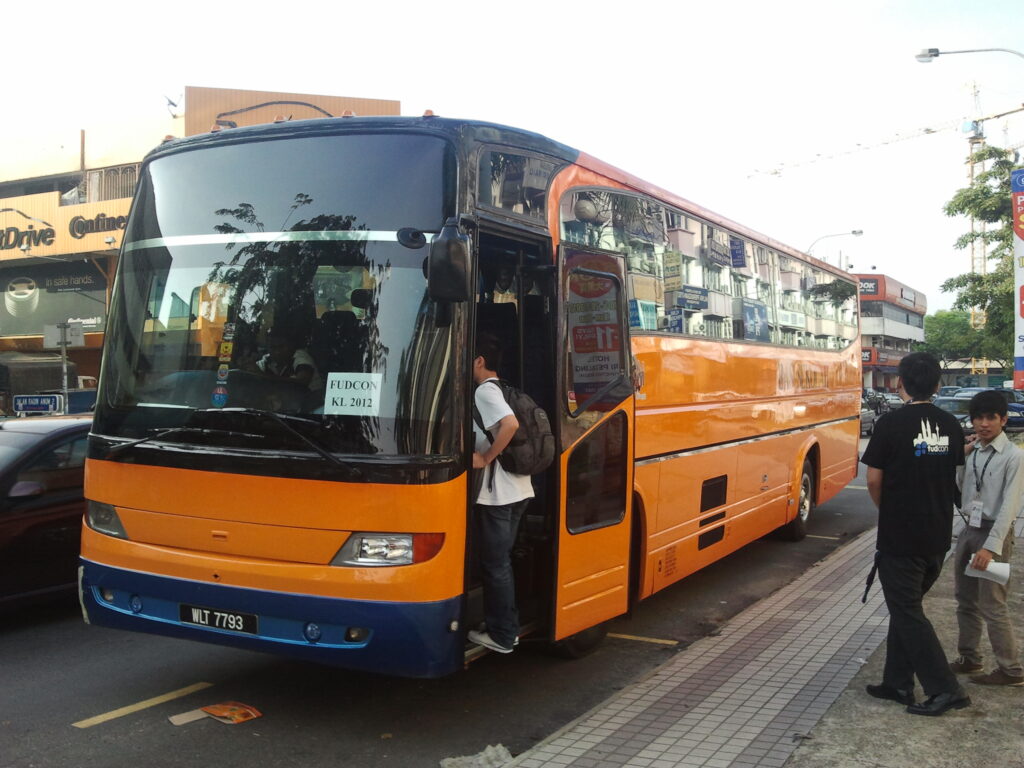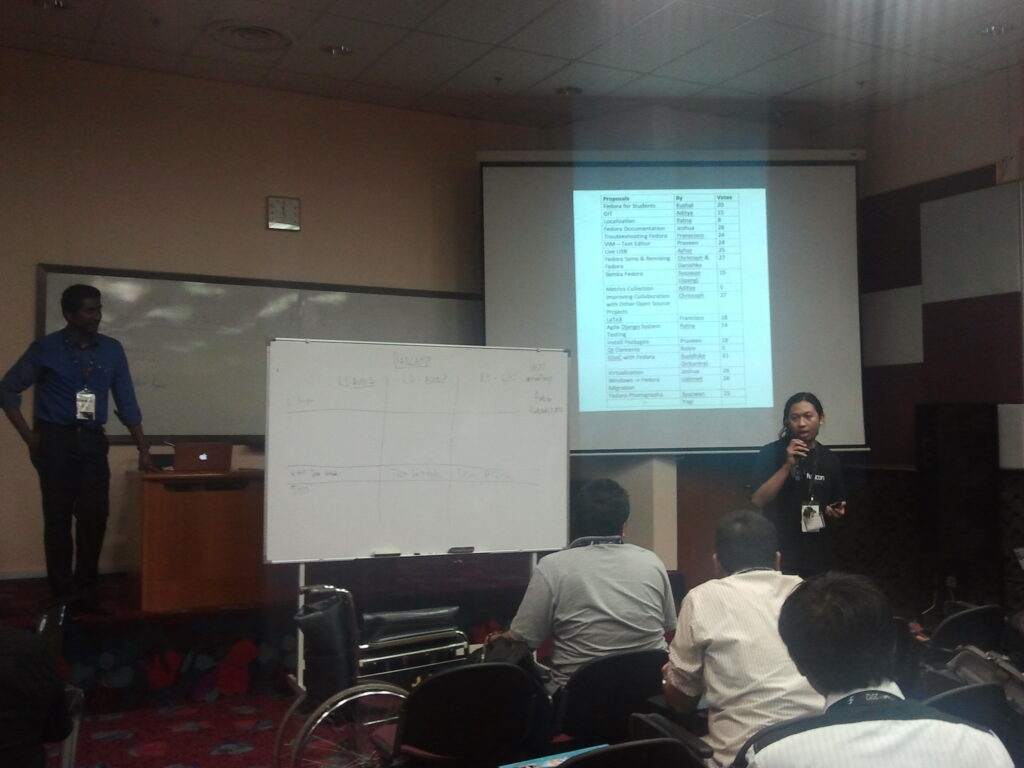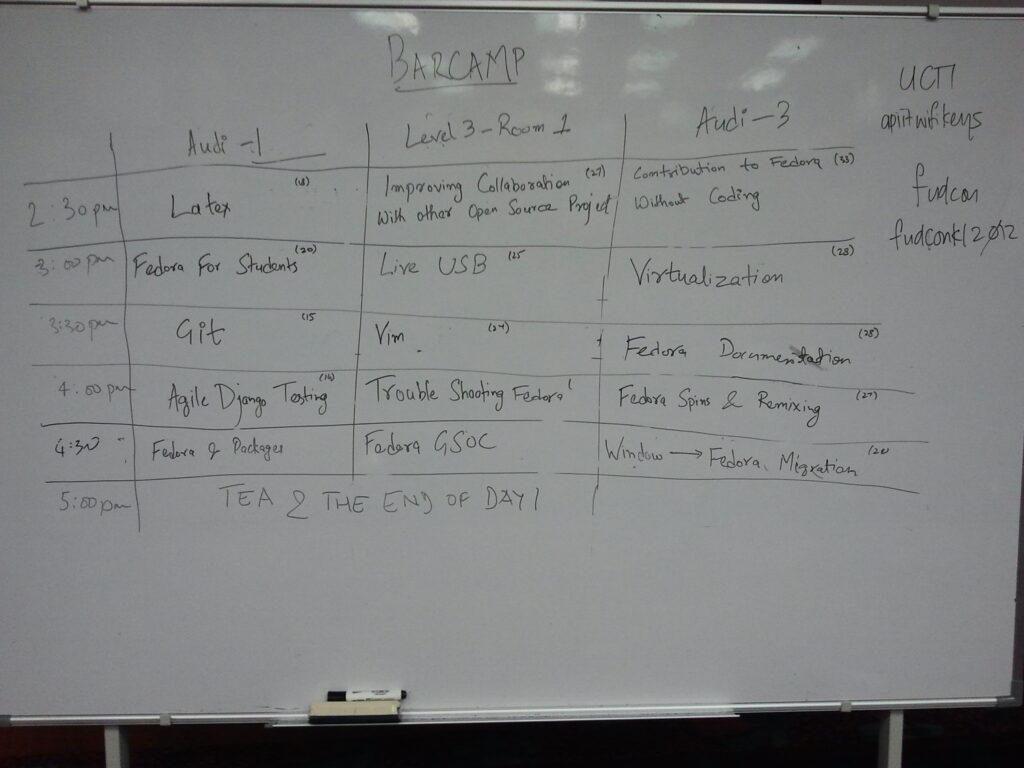I got up a little later than planned because it turns out that I am pretty jet-lagged after traveling for more than 24 hours. Nevertheless I managed to have breakfast before we had to leave. In front of the hotel, a shuttle bus was already waiting and quickly brought us to the venue at UCTI. Everything is extremely well organized here, thanks to an outstanding job of the Malayan Fedora community.

When we arrived at the university, we quickly registered in order to get the vouchers for lunch and teatime. Because of the high number of registered participants, the vouchers are limited to 50 attendees (plus Fedora contributors and FUDCon volunteers) which are given away first come first served. While I’d love to pay just everything for everybody, it turns out that doing first come first served is very useful: Not later then 8:30 most attendees had shown up and registered, even if the official opening was not before 10:00 pm.
After a quick introduction and some announcements, I kicked of FUDCon with my keynote. I had mixed feelings because on the one hand I had to jump in for others, on the other hand I am proud to have the opportunity to speak to so many people.

I didn’t want to start with something technical, but instead do something about community. My talk was about “Leadership in leaderless organizations”. Readers of The Starfish and the Spider probably know what I am talking about: Traditional leadership is – ideally – based on authority, elections or knowledge; In a less ideal world, it is based on birth, money or even fear. But none of these concepts work in an open system like FOSS in general and Fedora in particular as they don’t encourage participation. Still we do have leaders, but these people are not leading by any kind of formal authority but by example.
- They don’t command, they guide.
- They don’t demand, they encourage.
- They don’t make rules, they help defining standards that people voluntarily subscribe to.
I finished my talk with a quote from an email Max sent me this morning:
“It may not always be pretty, and it may not always be easy, but
persistence wins.”
However the concept of open, decentralized organizations seemed completely alien to the majority of attendees. Most of them were students and only few have have worked in a FOSS project before. Nevertheless they were fascinated by the idea that something that chaotic can not only exist but be very successful. They had a lot of questions after I finished and we had a vital discussion before we started pitching the barcamp sessions

I was skeptic if it makes sense to have barcamps on the first day, but the idea was to not ‘waste’ talks because Friday was not supposed to be the most productive day anyway. Many people were not be able to attend on Friday and we had a long break after dinner (on Friday after dinner, people here go to the mosque). I still was skeptic when we started pitching, but it seems people were just afraid or ashamed of standing in front of an audience and making a proposal. Turns out I was wrong, and in the end we had so many sessions that we decided to go for slots of only 30 minutes.

I now think that starting the barcamps on the first day right after my keynote was a big win. We not only had a very interesting and productive day, we also had the perfect showcase for an open, autonomous and decentralized system: There was no leader, nobody made rules, yet we had no problems making decisions and respond to the problem of having too many talks. The open system always wins!
AFAICS the first day of FUDCon Kuala Lumpur was a big success. I am grateful to be here and I’d like to thank everybody who helped to make this happen. Stay tuned for more awesomeness from Kuala Lumpur!
Thanks, Christoph for writing this up. I know I missed out on a great event. But things happen and Murhphy’s Law was alive and well. Perhaps my injury was what was needed for the event to happen as well as it did.